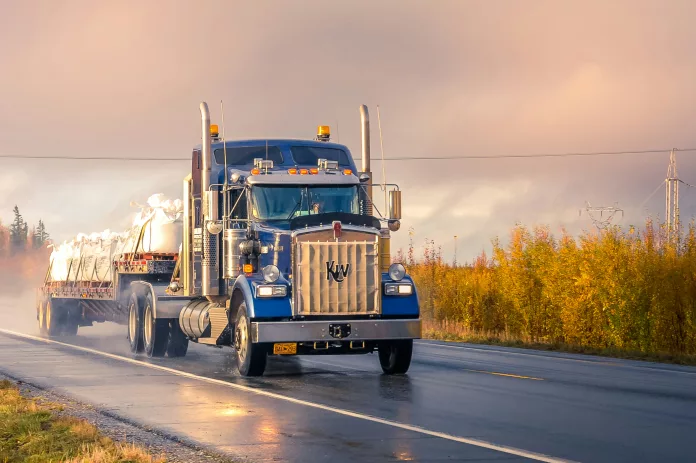The environmental impact of European truckmakers has been significantly understated as a startling new study by Transport & Environment (T&E) uncovers that their emissions are a staggering 50% higher than reported figures suggest. As the lens of scrutiny turns towards truck manufacturers, they find themselves at a critical juncture, with impending scope 3 disclosure requirements threatening to unveil their carbon intensive operations to investors.
The Gap in Emissions Reporting
In examining the leading truckmakers like Scania, MAN, and Volvo, among others, it becomes evident that their investment portfolios may be fraught with higher carbon risks compared to sectors such as oil production and car manufacturing. It’s important to note that the vast majority of a truckmaker’s carbon footprint is due to the truck’s fuel consumption over its lifespan. This aspect of emissions, previously not mandated for reporting, comprises virtually all of a truckmaker’s environmental impact.
Truckmakers’ Incomplete Emission Disclosures
An in-depth analysis reveals that several truckmakers, including Mercedes-Benz and DAF, have been completely evading the disclosure of their scope 3 emissions and as such are reporting only a minuscule fraction of their total emissions. Others, like IVECO and Renault, are also reporting lower than actual figures, raising questions about transparency and accountability in the industry. Only MAN and Scania seem to be reporting their emissions accurately, albeit at the cost of admitting to a higher carbon intensity.
The Urgent Shift to Zero Emission Models
With a critical eye on this issue, Xavier Sol of T&E stresses the urgency for truckmakers to revolutionize their fleets with zero emission vehicles. Not only would this prepare them for the stiffening regulations but it would also redefine their brand in the financial market as a sustainable investment option rather than a ‘carbon bomb.’
Comparison with Other Industries and the Push for Electric Trucks
Further comparisons draw a stark contrast between the truckmaking sector and other industries, with the former being second only to coal mining in carbon intensity per euro of revenue. This gap is expected to narrow with new EU regulations promoting the sale of zero-emission vehicles, which could drastically reduce truckmakers’ carbon footprints by 2025. The analogous transition in the automotive sector, with companies like Tesla and BYD leading the charge in electric vehicle sales, showcases the potential for improvement within the trucking industry.
New EU Legislation is a Game Changer
The recent European Union legislation mandating a higher share of zero-emission vehicle sales for truck and bus manufacturers is a significant leap towards greener transportation. The law, which will be implemented starting from 2025, is anticipated to facilitate almost a 30% reduction in emissions from truckmakers by 2030.
ESG Ratings and the True Climate Impact
On the topic of ESG (Environmental, Social, and Governance) ratings and their reflection of the climate impact, T&E points to glaring inconsistencies and oversights. There exists a massive discrepancy within the ratings provided by various agencies, often resulting in truckmakers receiving comparable scores to renewable energy companies, despite their substantial carbon emissions. This inconsistency highlights the need for rigorous standards and methodologies in assessing environmental performance.
In adjusting our lens and demanding comprehensive emissions reporting, we may steer the European truckmaking industry towards a greener and more sustainable trajectory, while also providing investors with clear and accurate insights into their environmental impacts and risks.

























